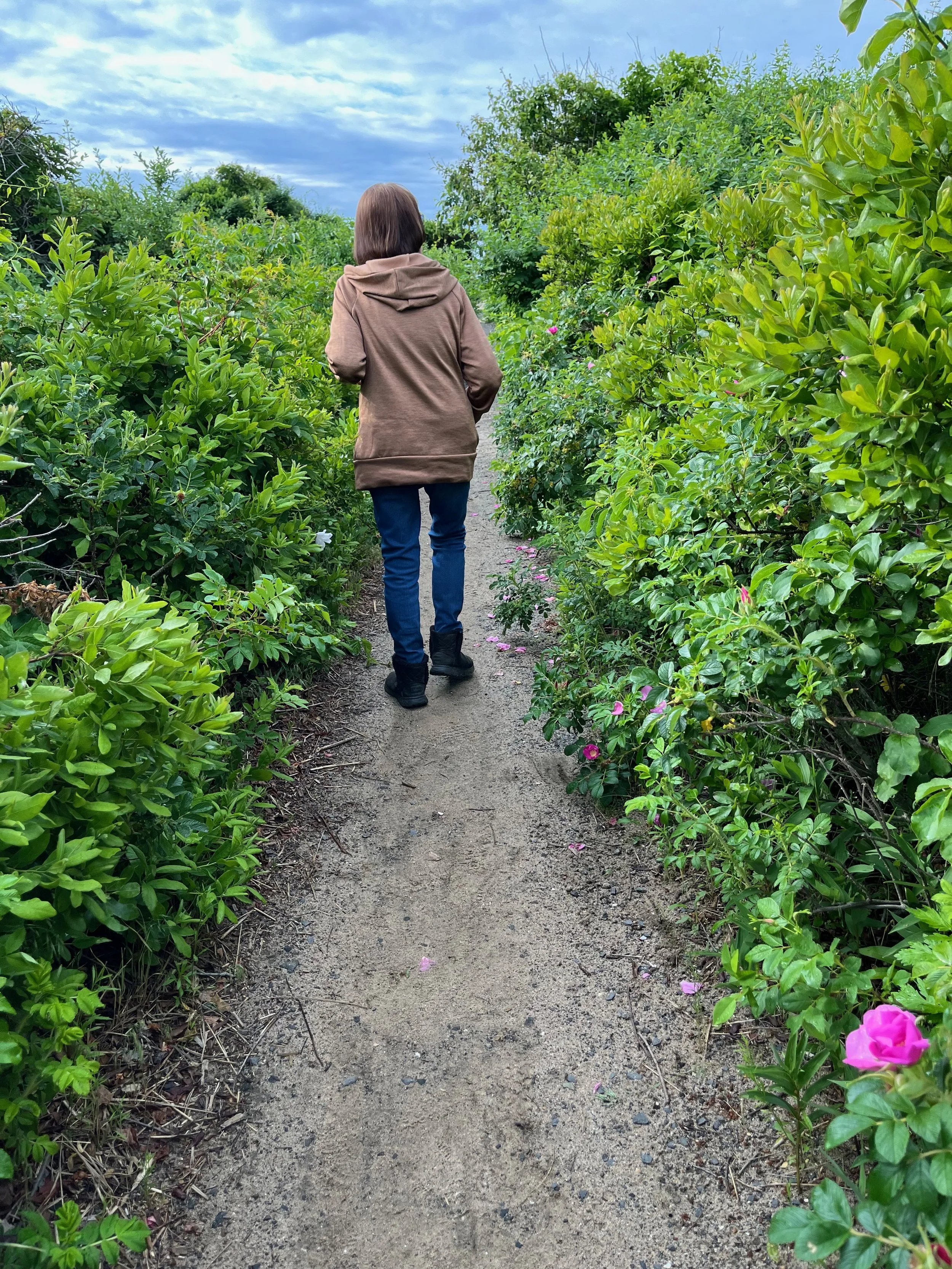Having a widowed mom, I’ve discovered this past year, is a different experience than having a married mom.
I was eight when my parents divorced and my mom was originally thrust into the dual role of single mom and household breadwinner. (There was child support and I regular visits with my dad, but the day-to-day experience was definitely not nuclear.) I got to see what it was like for my mom to be alone. She’s not exactly an extrovert, and the loneliness was palpable. It made my young heart sad. I yearned for her to be happy, smiling and vivacious. I wanted her to feel at peace and have some pep in her life. Eventually she found it when she met and married my stepfather.
A year and a half ago, after 39 years of marriage, my stepfather died. As ailing as his health had been, it was still a shock when he died of congestive heart failure. My mom, freshly back in CT living the town over from me, at my instigation, was obviously bereft. They were both more prone to hang at home than go out with friends; they were each other’s worlds. The first months after he died were spent figuring shit out: adjusted social security payments, what her budget was, how to get heating assistance. We were setting her up for a solo life again.
Once the practical matters were settled (at least mostly; they’re never entirely settled), it became more about the emotional companionship. Once again, I am a girl trying to make my mom happy. I have more means and knowledge to do it, but you can never make another person happy. I can make her days brighter, I can share small moments of joy, I can ease the loneliness. But I can’t control how she thinks, feels, or acts.
It's a lot to be constantly turning over in my head. Then you add a touch of Alzheimer’s/dementia to the mix.
There are days when I want to scream about her confusion over how many kids my friends have. When I’m going out of town. What sports Parker plays. All these are things that she asks to which I’ve already answered, repeatedly. It’s infuriating that she doesn’t remember. But it’s also neurological. It’s not like I can blame her brain for failing her. I see her notes to herself, reminding her of questions to ask me, tracking her appointments and finances and needs, the many daily things she wants to remember. She’s doing the best she can, just like the rest of us.
Then there’s Andrew’s mom: widowed three months after mine. She also lives in a neighboring town. She’s the same age as my mom. And she is thriving.
She had always wanted to live in New England and, despite missing her husband, couldn’t be happier to now be here. She belongs to different clubs, goes for walks, has a robust social circle only a year after living here. She is sharp, dynamic, and relentlessly active.
Rounding out the trifecta is my best friend’s mom. Same age. Moved to Madison about the same time as the other moms. And though she had been divorced, she was friendly with her ex—who also died this year. She has officially been diagnosed with dementia and her cognitive decline has been swift and devastating. She is often confused, but tries to joke about her lapses. There’s an awareness that things aren’t right in her mind, a constant reminder of how cruel the disease is. She can no longer drive and some days is in too much pain to get around.
I sit between, and with, these three realities. These three women in my life, each with such similar yet different circumstances, therefore leading similar yet different lives. I have to question the nature versus nurture debate: how much of their physical, cognitive and emotional health is their genes and heredity and how much is the accumulation of a lifetime of habits and behaviors. I have to question my own choices and the experts I read and listen to, telling me the foods to eat and not eat, the best forms of exercise, how to reduce stress in my life, the importance of sleep—all the advice to help ensure healthy brain function for decades to come. I think more and more about death. How it comes for each of us and, sometimes despite our best guesses and efforts, surprises us with its final decision.
I now live with uncertainty. A looming sense of dread. A precarious understanding of what is and isn’t in my control. This is all always under the surface. But as much as I may be pondering the complexities and pains that have fallen upon each of the moms, day to day I am also experiencing the joys of my own midlife: My child and husband, my creative and physical pursuits, my relationship with and knowledge of nature, quotidian pleasures like reading and puttering. It’s life: a complicated mix of pain and hope, fear and frivolity, connection and community, shot through with intense love.


